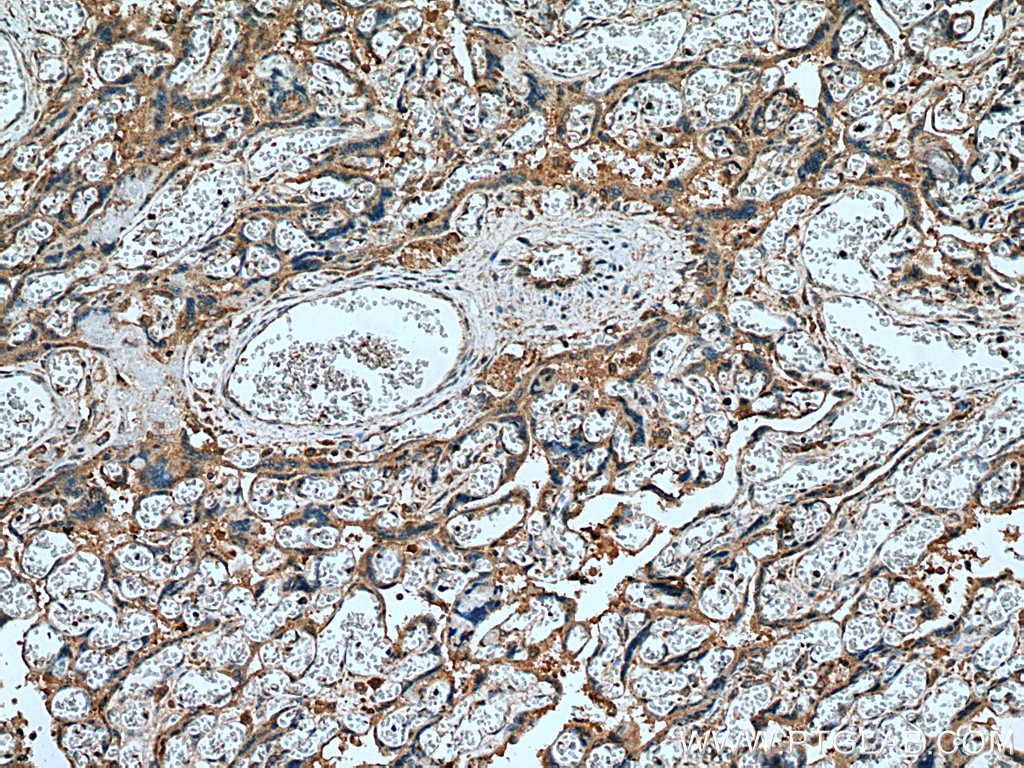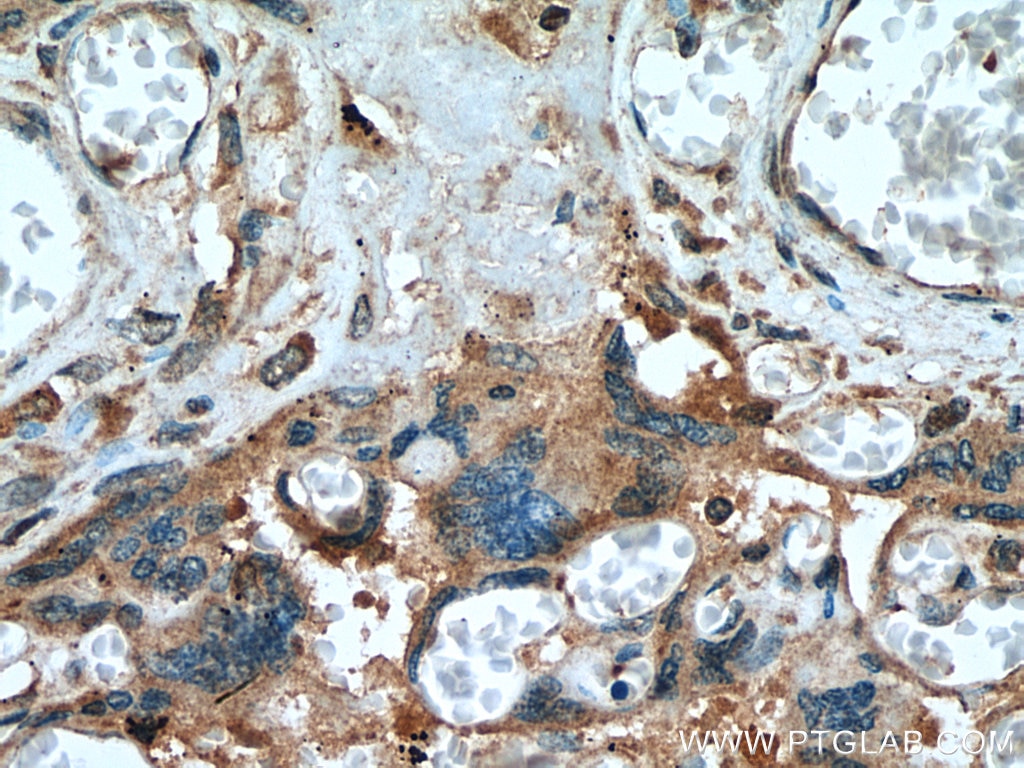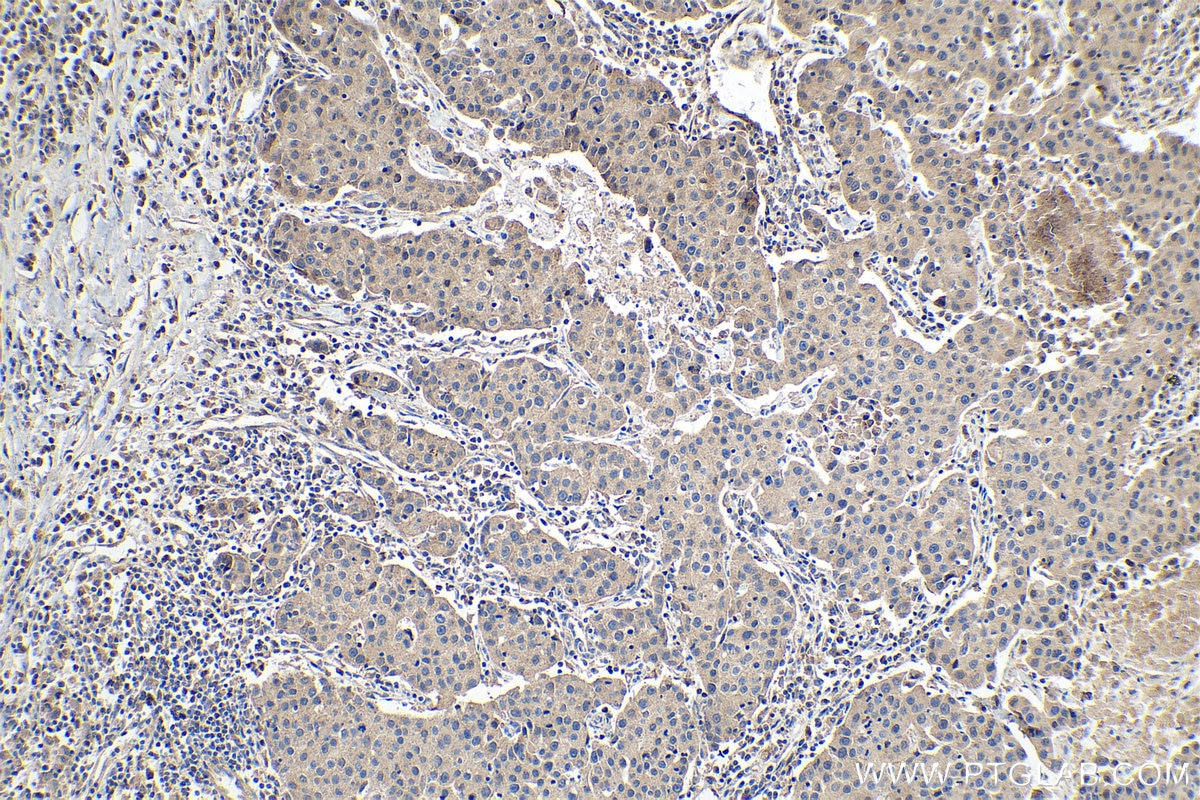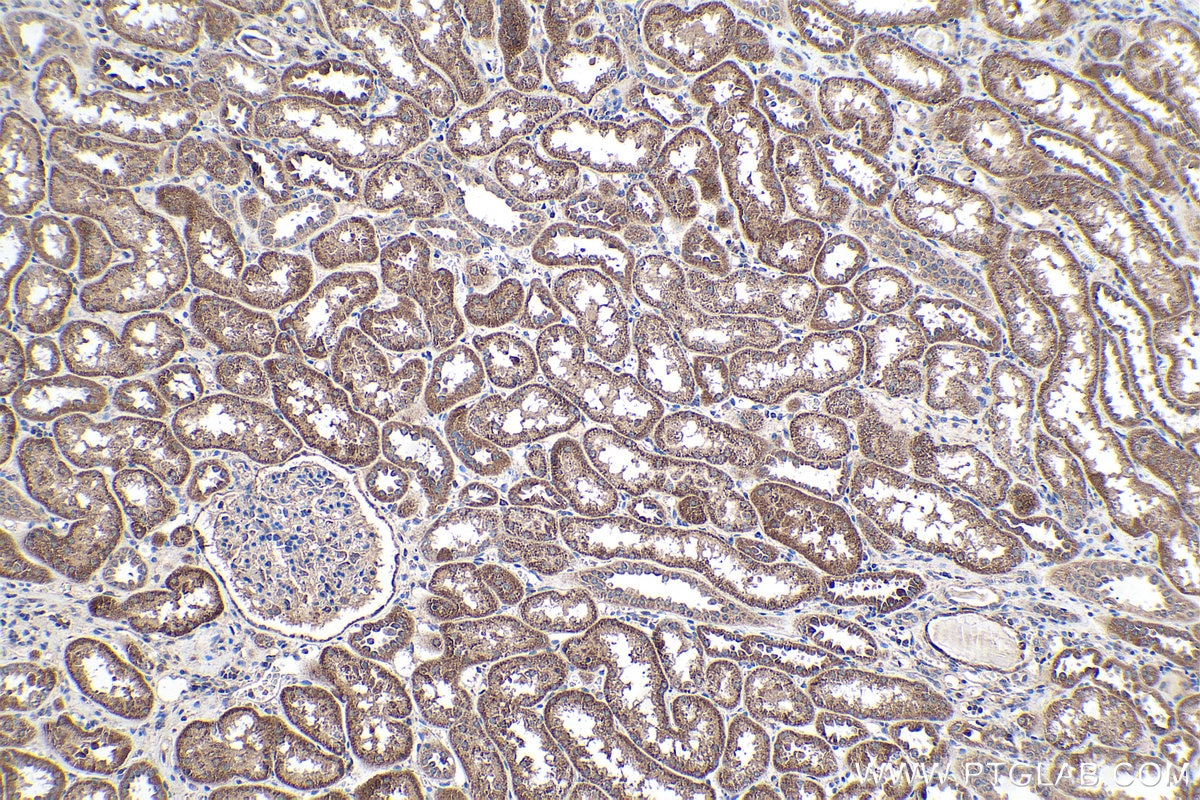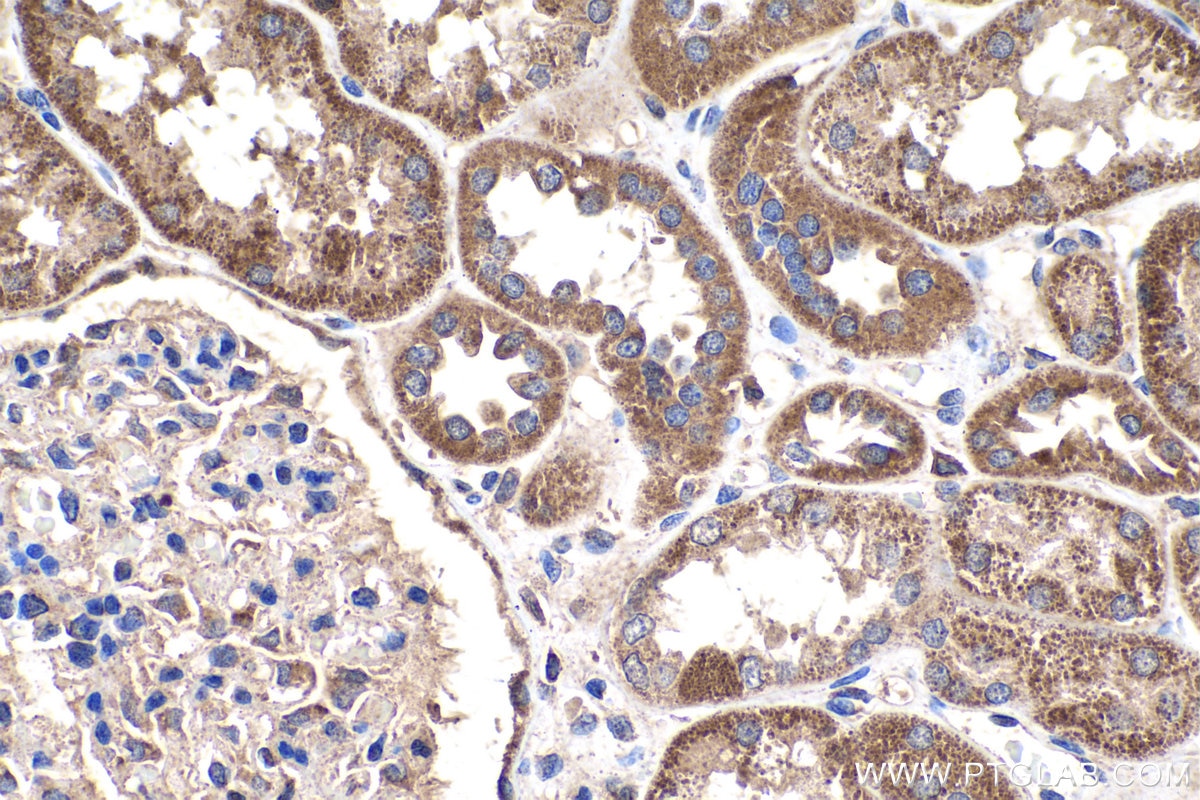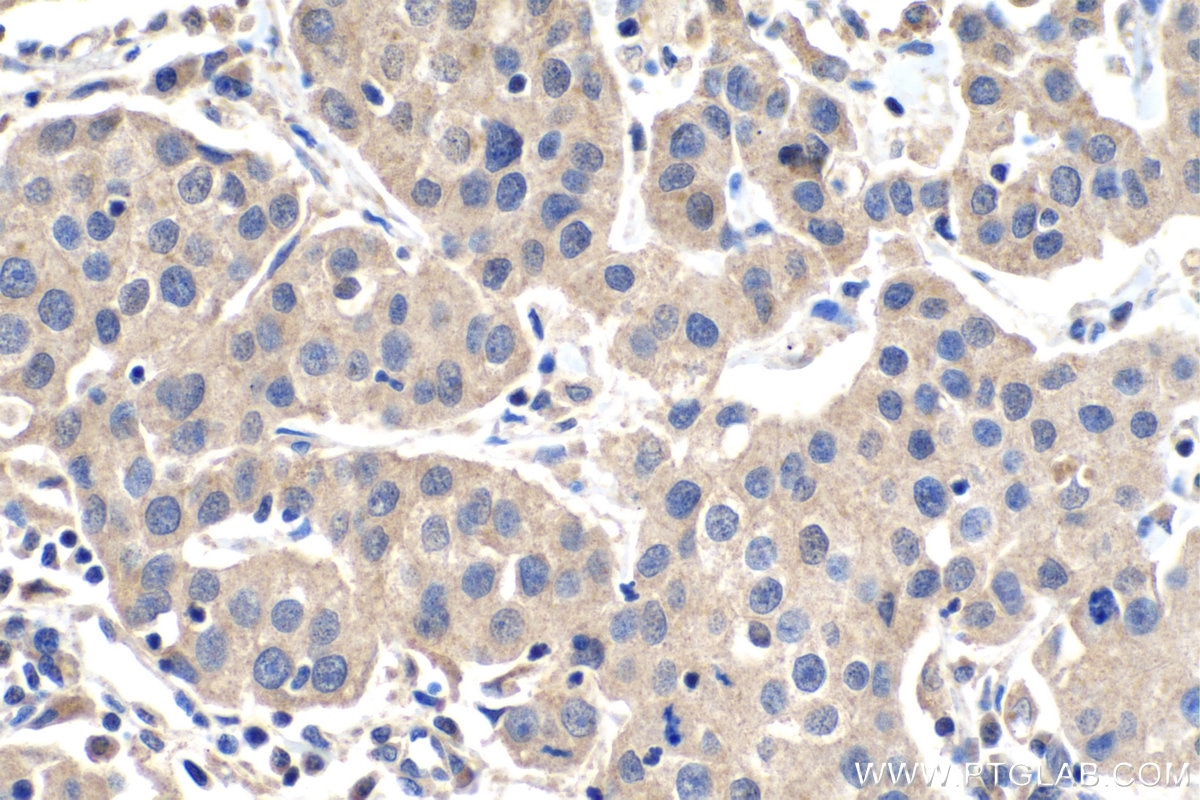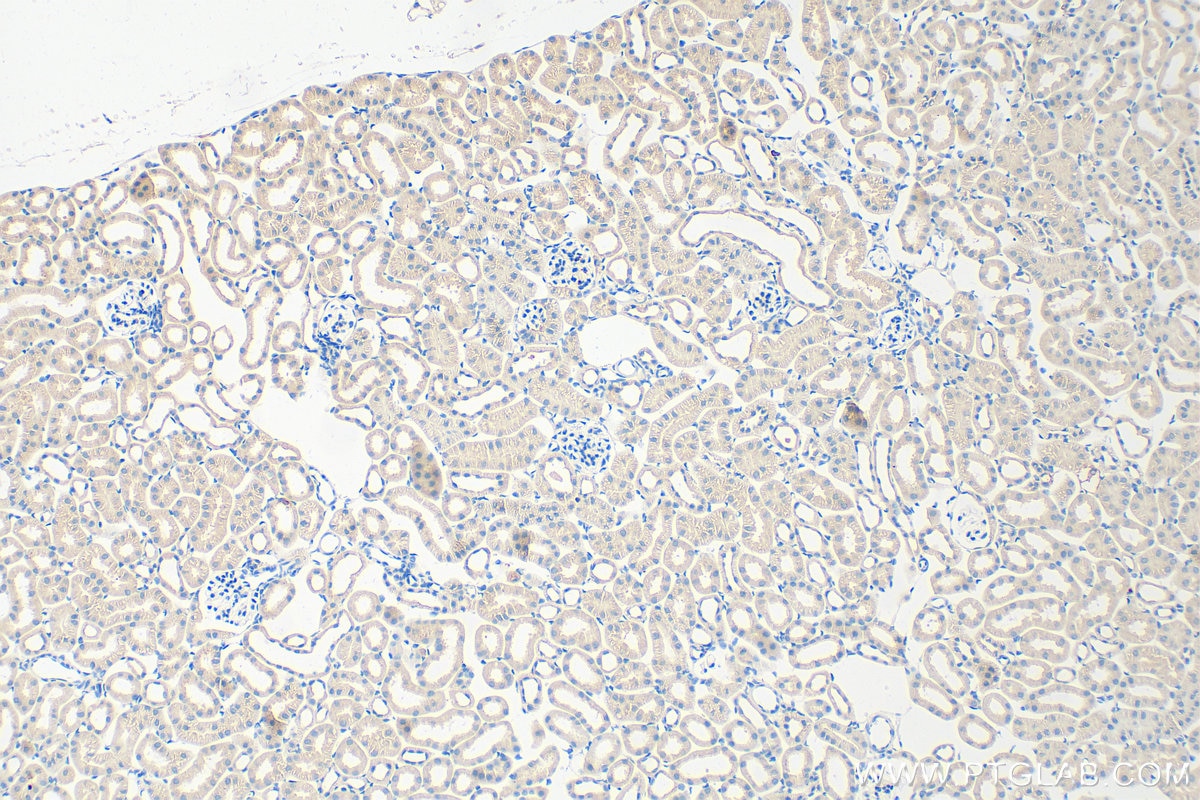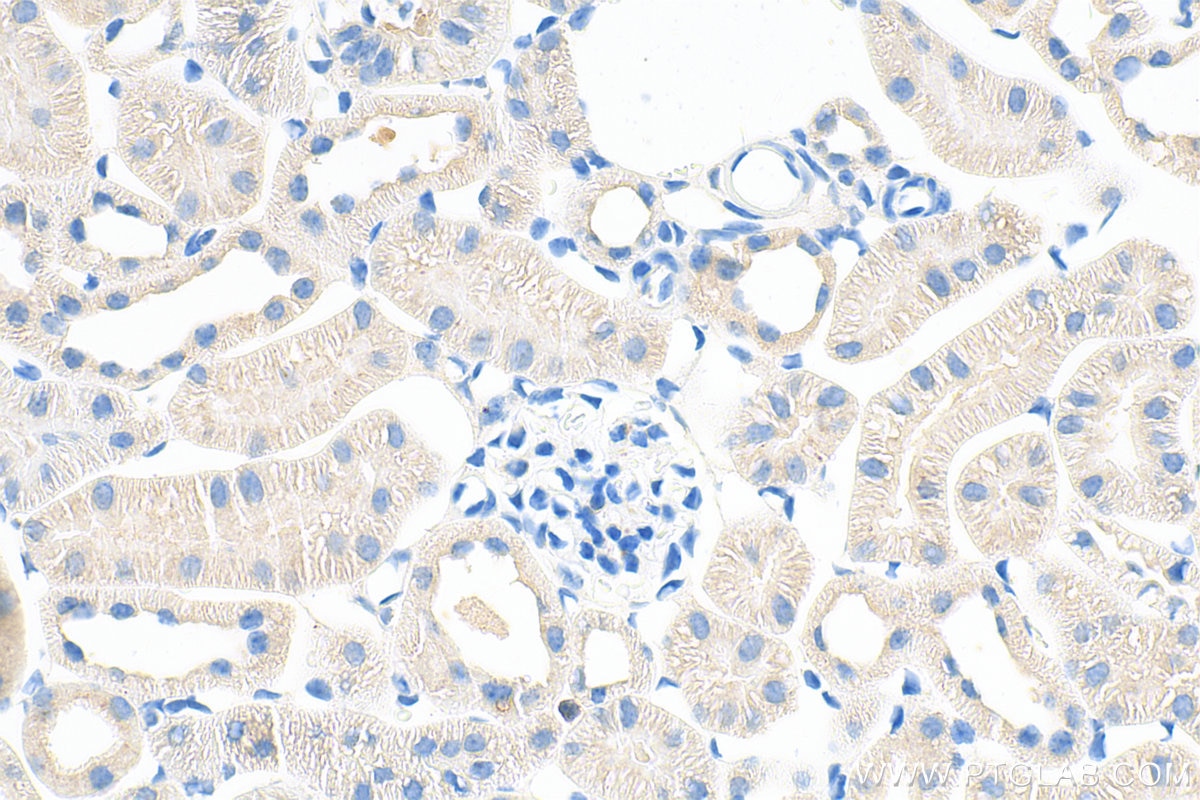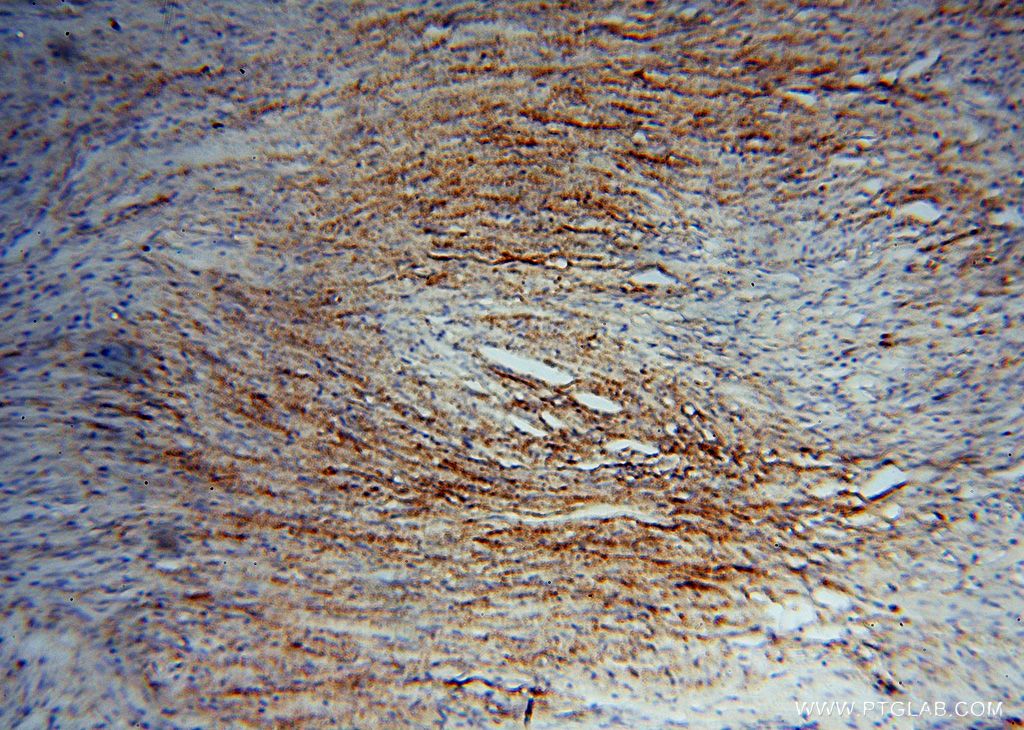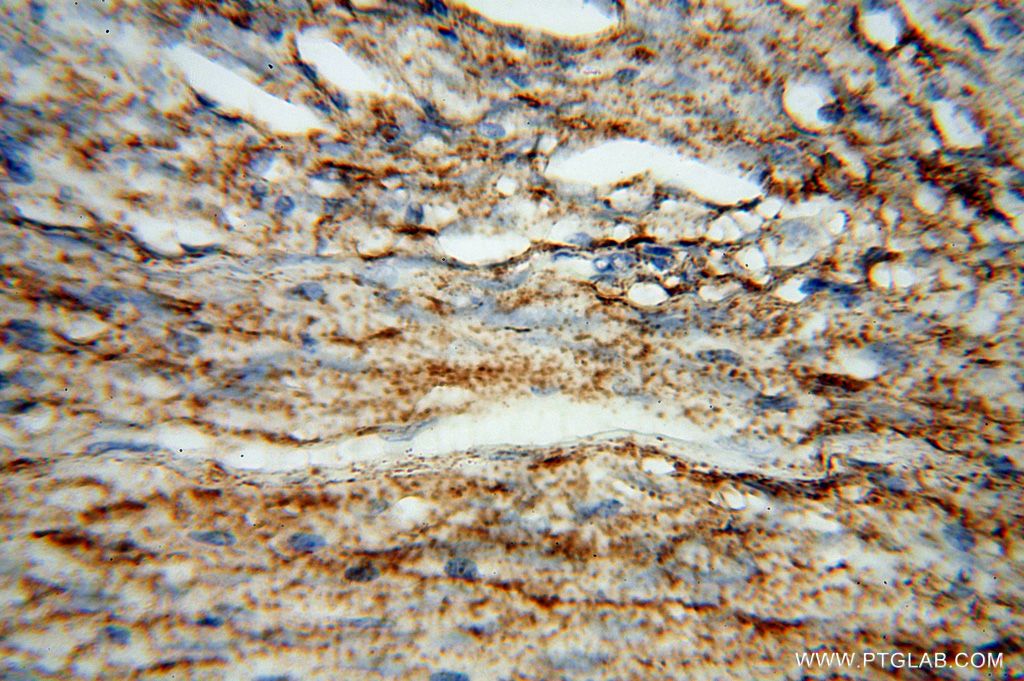- Featured Product
- KD/KO Validated
PGF/PIGF Polyklonaler Antikörper
PGF/PIGF Polyklonal Antikörper für IHC, ELISA
Wirt / Isotyp
Kaninchen / IgG
Getestete Reaktivität
human, Maus und mehr (1)
Anwendung
IHC, IF, ELISA
Konjugation
Unkonjugiert
Kat-Nr. : 10642-1-AP
Synonyme
Geprüfte Anwendungen
| Erfolgreiche Detektion in IHC | humanes Plazenta-Gewebe, humanes Mammakarzinomgewebe, humanes Nierengewebe, humanes Meningiom-Gewebe, Mausnierengewebe Hinweis: Antigendemaskierung mit TE-Puffer pH 9,0 empfohlen. (*) Wahlweise kann die Antigendemaskierung auch mit Citratpuffer pH 6,0 erfolgen. |
Empfohlene Verdünnung
| Anwendung | Verdünnung |
|---|---|
| Immunhistochemie (IHC) | IHC : 1:200-1:800 |
| It is recommended that this reagent should be titrated in each testing system to obtain optimal results. | |
| Sample-dependent, check data in validation data gallery | |
Veröffentlichte Anwendungen
| KD/KO | See 3 publications below |
| IHC | See 10 publications below |
| IF | See 11 publications below |
Produktinformation
10642-1-AP bindet in IHC, IF, ELISA PGF/PIGF und zeigt Reaktivität mit human, Maus
| Getestete Reaktivität | human, Maus |
| In Publikationen genannte Reaktivität | human, Maus, Ratte |
| Wirt / Isotyp | Kaninchen / IgG |
| Klonalität | Polyklonal |
| Typ | Antikörper |
| Immunogen | PGF/PIGF fusion protein Ag0969 |
| Vollständiger Name | placental growth factor |
| Berechnetes Molekulargewicht | 25 kDa |
| Beobachtetes Molekulargewicht | 50 kDa |
| GenBank-Zugangsnummer | BC007789 |
| Gene symbol | PGF |
| Gene ID (NCBI) | 5228 |
| Konjugation | Unkonjugiert |
| Form | Liquid |
| Reinigungsmethode | Antigen-Affinitätsreinigung |
| Lagerungspuffer | PBS with 0.02% sodium azide and 50% glycerol |
| Lagerungsbedingungen | Bei -20°C lagern. Nach dem Versand ein Jahr lang stabil Aliquotieren ist bei -20oC Lagerung nicht notwendig. 20ul Größen enthalten 0,1% BSA. |
Hintergrundinformationen
Placenta growth factor (PLGF) is also named as PGF and PGFL. PGF is a homodimeric glycoprotein, 46-50 kDa in size, belonging to the vascular endothelial growth factor (VEGF) sub-family. It plays an important role in pathological VEGF-driven angiogenesis. PLGF is expressed not only in placental cells but also in colon and mammary carcinomas. It acts as a primary inflammatory instigator of atherosclerotic plaque instability and thus may be useful as a risk-predicting biomarker in patients with acute coronary syndromes (ACS).
Protokolle
| PRODUKTSPEZIFISCHE PROTOKOLLE | |
|---|---|
| IHC protocol for PGF/PIGF antibody 10642-1-AP | Protokoll herunterladenl |
| STANDARD-PROTOKOLLE | |
|---|---|
| Klicken Sie hier, um unsere Standardprotokolle anzuzeigen |
Publikationen
| Species | Application | Title |
|---|---|---|
Brain. Global gene expression profiling of somatic motor neuron populations with different vulnerability identify molecules and pathways of degeneration and protection. | ||
Biomaterials Combination antitumor immunotherapy with VEGF and PIGF siRNA via systemic delivery of multi-functionalized nanoparticles to tumor-associated macrophages and breast cancer cells.
| ||
Biomed Pharmacother HIF-1α inhibitor YC-1 suppresses triple-negative breast cancer growth and angiogenesis by targeting PlGF/VEGFR1-induced macrophage polarization | ||
Cancers (Basel) Occurrence of Fibrotic Tumor Vessels in Grade I Meningiomas Is Strongly Associated with Vessel Density, Expression of VEGF, PlGF, IGFBP-3 and Tumor Recurrence. | ||
Diabetes Obes Metab Polarized macrophages promote gestational beta cell growth through extracellular signal-regulated kinase 5 signalling. | ||
Int J Mol Sci Alzheimer's Amyloid β Peptide Induces Angiogenesis in an Alzheimer's Disease Model Mouse through Placental Growth Factor and Angiopoietin 2 Expressions |
